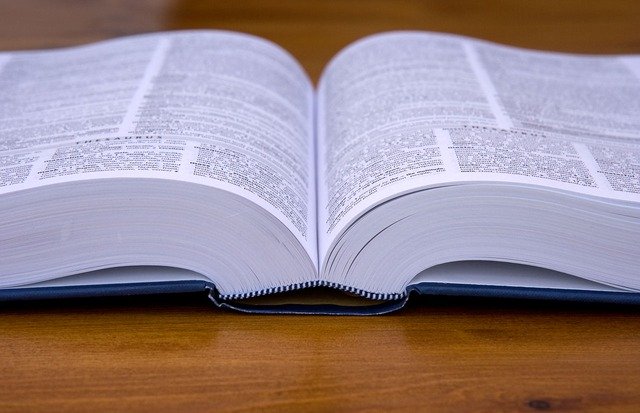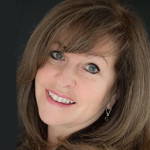One of the trends of the COVID-19 lockdown has been an increase in online shopping, not only for groceries to avoid long queues and to self-protect (if one could secure a slot), but also to while away those sleepless hours which, too, have become a symptom of the pandemic experience.
 During one particular online browse I was offered a free trial of Audible, the audio-bookseller. Since the arrival of podcasts (which enable me to multi-task), I’ve found my ‘books to be read’ piling up. Perhaps listening to a book might mean I actually finish it! I promptly downloaded my choice: Wuthering Heights. I’d always meant to read it (love the song/seen several film versions/thought I knew the plot). Fast forward and I’m obsessed with it. Joanne Froggatt’s eclectic range of accents to differentiate the dialects and characters is wildly entertaining. Her rendition of the servant Joseph’s broad Yorkshire brogue is just brilliant, although it did require particular concentration if I were to remotely comprehend what he’d said and follow the narrative. It could have been another language.
During one particular online browse I was offered a free trial of Audible, the audio-bookseller. Since the arrival of podcasts (which enable me to multi-task), I’ve found my ‘books to be read’ piling up. Perhaps listening to a book might mean I actually finish it! I promptly downloaded my choice: Wuthering Heights. I’d always meant to read it (love the song/seen several film versions/thought I knew the plot). Fast forward and I’m obsessed with it. Joanne Froggatt’s eclectic range of accents to differentiate the dialects and characters is wildly entertaining. Her rendition of the servant Joseph’s broad Yorkshire brogue is just brilliant, although it did require particular concentration if I were to remotely comprehend what he’d said and follow the narrative. It could have been another language.
But it was when I heard that Joseph ‘brought out his pocketbook’ that I was really puzzled. ‘Pocketbook’? That’s an American term, surely, not one we Brits have ever used. I consulted my trusty OED. There it was:
’A pocket-sized folding case for holding banknotes, papers, etc.; a wallet. Now chiefly U.S.’
‘Now chiefly U.S.’ Clearly then, along with those old chestnuts: ‘sidewalk’; ‘gotten’; ‘Fall’ and -ize spellings, ‘pocketbook’ used to be part of what we now term ‘British English’.
And so began my deep dive into the study of English, a language which has become and will doubtless continue to be such a medley of variations on a theme – rather a family or a web of languages – that I wondered whether a more appropriate label might not be coined to better express its global texture and fluid nature. But of course, we already have at least two candidates: World English and Globlish.
Which English?
English is my first language. It is also the lingua franca of 60–70 countries, spoken by an estimated 2.3 billion people (2018), either as their first language or as their second or third language. As an editor, I strive to enforce consistency in terminology and spelling in any given manuscript, ensuring the author’s preference for either British English or American English throughout the text. But why do so many of us only adhere to those two varieties? Why not Scottish English or Irish English, Australian English or Canadian English? Why not Singaporean English? Who decided the standard? And when?
According to David Crystal, the linguistics guru, a language becomes a global one because of the power of those who speak it. Once Britain had established itself as an empire, English was adopted by those who aspired to be part of the elite groups associated with it. It may be surprising to read that access to learning English was expressly reserved for the colonial elite and was not imposed on Indigenous peoples. Limiting access to it was a way to exercise control over them. With Indigenous languages and local dialects being actively encouraged, this also had the effect of firmly segregating those peoples. And so English became the ‘gold standard’. Those who achieved a good command of it could strive for better jobs and enter the world of commerce, the arts, politics and science. Had the British followed a policy of linguistic imperialism, English might even have been resisted.
 Standardisation and domination
Standardisation and domination
It was not until 1755 with Samuel Johnson’s authoritative dictionary that rules and standards were applied to English, although word lists had been compiled before. Sixteenth-century English was not as prescribed as it is today, and we find different spelling variations of the same words in Shakespeare’s works, for example, as evidence of that, such as ‘learnt’/’learned’; ‘inke’/’ink’; ‘hypocrisie’/’hypocrisy’. Today we (still) talk of the ‘Queen’s English’. What we mean by that lofty standard is that those who speak and write that variant may be judged differently from those who do not. Even now, those who learn English around the globe are encouraged to acquire the haughty tones which might classify them as, perhaps, ‘better’ English speakers.
There is more than an element of kudos attached to speaking and writing English; it offers access to worldwide opportunities. We know that academics simply must publish in English if they are to reach the widest possible audience, whatever their specialised subject. English is the language used at international conferences, the working language of many global organisations, and of the travel industry. I worked in France, Belgium and Germany for over 20 years and was fortunate enough to work with some iconic brands. The working language of all of them was English – British English.
American English has, however, become the dominant standard since the American rise to superpower status after the Second World War. British and American English had been diverging since the two nations first separated and likely as soon as the first British settlers found animals and vegetation they’d not encountered before which they needed to classify. Perhaps divergence did not seem important then, given the geographical divide.
Adoption and adaptation
When a country adopts English, it immediately adapts it, claims Crystal. It will use standard English for global purposes but it will reshape it and fashion it, manipulate it every which way in order to better express its own particular needs. The adapted version will encapsulate the local cultural identity and be a means of expressing solidarity, even to the point where it may even become unintelligible to other English speakers – which perhaps is the aim.
Webster’s 1783 American English dictionary sought to give every letter in a syllable its due proportion of sound which means that today we see ‘traveler’ and ‘honor’ in American English but ‘traveller’ and ‘honour’ in British English. Small matter perhaps because such minor adjustments are still understood. But evidently, over time, the English language has been used as a framework to create other versions specific to particular groups and communities. Such variants became languages in their own right, unique and particular to those who created them based on their own narratives. Take, for example, ‘Singlish’. The fusion of English and Singaporean is so highly stylised, it cannot be understood by most English speakers. Language expresses identity, solidarity, inclusion … exclusion. Enslaved African Americans developed their own dialect from the English they learned in order to conceal their intended meaning from their enslavers. Such a tactic created a new language community by manipulation of a forced second language.
Take, too, the various dialects that are drawn from multiple ethnic groups today, typically spoken by young people, often dismissed, even stigmatised, such as ‘Jafaican’ (fake Jamaican). What about the secret languages which emerge as a way to show belonging in a marginalised subculture such as the gay community? Not so long ago, its very existence was deemed so immoral its members were forced to develop a secret code to talk to each other as a form of self-protection. Urban Dictionary, the online slang repository, may be denigrated by purists for its low-brow content but it has 65 million visitors each month. Such variants, anti-languages, used by subcultures often on the very edge of society, can become ‘cool’ and trickle into mainstream usage, even being adopted by those who originally deemed them to be socially unacceptable. Urban’s motto, ‘Define Your World’, is most illuminating, encapsulating the very essence of language.
The American melting pot into which Indian, Yiddish, German, Chinese, African, Italian, Caribbean, South American, Spanish and myriad other languages were poured, stirred and simmered over time has produced a version of English which caters to the needs of all those peoples. It is undoubtedly a compromise, but it does the job. Today we see the Yiddish ‘klutz’ (clumsy) and ‘schmuck’ (fool) in British English, both having been incorporated into American English during the great migrations of the last two centuries. American English certainly influences British English. But there are many differences, too. The American ‘cookie’ for example, from the Dutch ‘koekje’ is vastly different from the British ‘biscuit’ which is the same baked treat nevertheless. In American English, ‘biscuit’ translates to ‘muffin’ and is served at breakfast but which I would tuck into it at afternoon tea! The potential for misunderstanding
is rife.
Some transformations, however, can be easily identified. ‘Santa Claus’ derives from the Dutch, ‘Sinterklaas’. In that derivation we not only see the word morph but also the ‘sint’ (no a) himself. Traditionally he’s a Dutch/Flemish religious character, in crimson robes with a staff, who bestows gifts on children on 6 December. Santa Claus today is a corpulent, bearded, jolly fellow, in a fur-trimmed bright-red jumpsuit who rides the skies bearing gifts for all on 25 December/Christmas Day. In Britain he is known as Father Christmas but the American English version of ‘Santa’ is becoming more and more popular as American English continues to influence and permeate its British forebear.
 Borrowing, accommodating and evolving
Borrowing, accommodating and evolving
As I moved around Europe with my family, we mastered the different languages as best we could but also borrowed from them so that now we often find ourselves mixing them all to arrive at the best sense of what we might mean. I still use German words of command for my dogs even though one of them didn’t even live with us in Germany and came from Greece. And I admit to cursing using a particular French term. Such mixing and borrowing, or code switching and code mixing, is common behaviour. Language transfer can be just the ticket if you can’t remember or don’t know a word in a particular language, or if you know that your interlocutor knows the foreign language word which expresses a concept better than the language you are using. Our daughter coined the term, ‘I blaguise’ by which she means ‘I’m joking’. There is no verb ‘blaguiser’ in French. The verb is ‘blaguer’ – ‘to joke’ – or must be constructed using ‘faire’ (to make) to arrive at ‘faire une blague’ or a different word altogether, ‘plaisanter’. She also concocted ‘cahootian’, meaning one with whom she is in cahoots! Both terms are part of our family-speak now.
I’ve always marvelled at how other nationalities could speak English so well. As an expat I did my best to learn my host country’s language but I could never equal my colleagues’ linguistic abilities; those who flitted from their first language to English so effortlessly. Indeed, for many of them it seemed as if English was their second first language! Nevertheless, it was common to articulate more clearly in their company and to speak more slowly, avoiding jargon and word plays. Brutt-Griffler claims that such changed behaviour should not be seen as ‘talking down’ but rather as a way to accommodate. She asserts that the price a world language must be prepared to pay is that it will be transformed and adapted. It will inevitably become a hybrid and purists will simply have to hold back.
English may be the world’s lingua franca now. It may not always be. In the meantime, it will continue to evolve, be shaped and moulded to suit the purposes of its many users. Whatever has been, English, or World English or Globlish will have to be more flexible than ever and take account of genders, race, new and emerging cultures and lifestyles if it is to continue to dominate. If American English persists, perhaps, too, we might see ‘pocketbook’ in use in British English again.
References
Brutt-Griffler, J (2002). World English: A Study of its Development. Australia: Footprint Books.
Crystal, D (2003). English as a Global Language. Cambridge: Cambridge University Press.
Crystal, D (2012). English Worldwide. In R Hogg (ed.), A History of the English Language, 2nd edn. Cambridge: Cambridge University Press, 420–39. DOI: https://doi.org/10.1017/CBO9780511791154.010.
Crystal, D (nd). davidcrystal.com
Luu, C (2018). The Unspeakable Linguistics of Camp. Lingua Obscura. https://daily.jstor.org/unspeakable-linguistics-camp/
McArthur, T (2009). World English and world Englishes: Trends, tensions, varieties, and standards. Language Teaching, 34/1: 1–20, DOI: https://doi.org/10.1017/S0261444800016062
Ro, C (2019). How Linguists are using Urban Dictionary. Daily JSTOR. https://daily.jstor.org/how-linguists-are-using-urban-dictionary/
 Melanie James, from Take it as read, writes for businesses but also edits anything to do with history, particularly WW1. Having lived in Europe for over 20 years, she likes to think she speaks French, German and a smattering of Dutch. She also knows one word of Lëtzebuergesch (’moien’). Melanie’s husband works in Luxembourg so she visits when she can. Having just returned from the Grand Duchy, she is now in quarantine!
Melanie James, from Take it as read, writes for businesses but also edits anything to do with history, particularly WW1. Having lived in Europe for over 20 years, she likes to think she speaks French, German and a smattering of Dutch. She also knows one word of Lëtzebuergesch (’moien’). Melanie’s husband works in Luxembourg so she visits when she can. Having just returned from the Grand Duchy, she is now in quarantine!
This post originally appeared on Melanie’s own blog in July 2020: From pandemic browsing to pocket-book intrigue
Photo credits: Haworth moor by Rachel Penney; Father Christmas/Santa Claus by Alicia Slough, both on Unsplash. Dictionary by PublicDomainPictures on Pixabay.
Posted by Abi Saffrey, CIEP blog coordinator.
The views expressed here do not necessarily reflect those of the CIEP.
